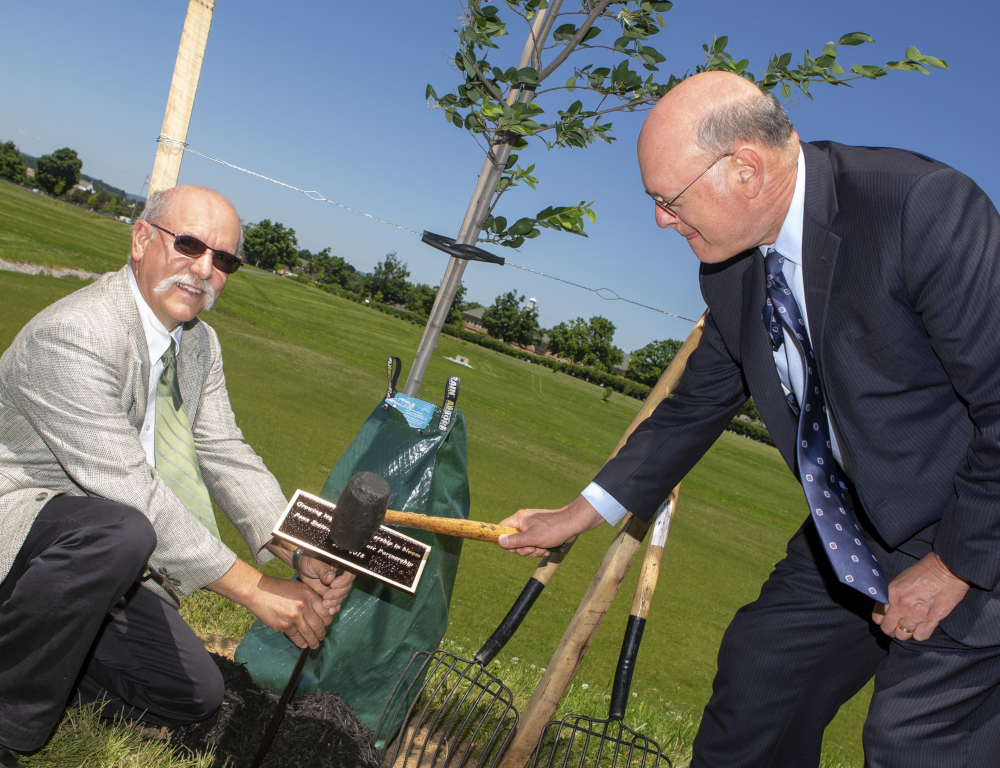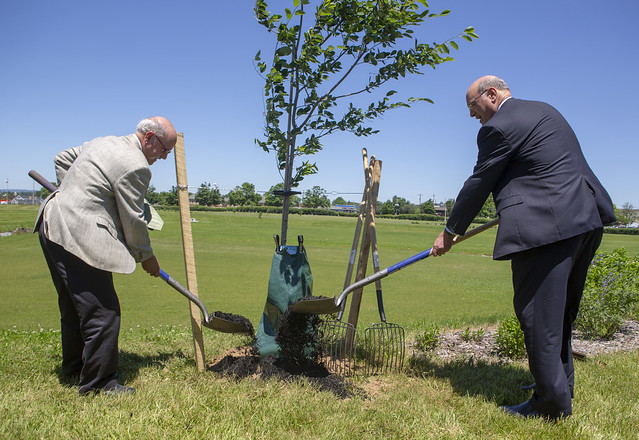College of Medicine, Rodale Institute partner to improve public health

Penn State College of Medicine and Rodale Institute announced yesterday their partnership to connect food production with health care and to promote and improve public health. To celebrate their shared commitment to expanding access to organic foods and fresh produce, the two institutions signed a memorandum of understanding (MOU) and formalized the collaboration with a tree-planting ceremony on the campus of Penn State Health Milton S. Hershey Medical Center.
The partnership between the two organizations has already resulted in increased access to healthy food for vulnerable families through the College of Medicine's Food as Medicine Program and Rodale Institute's Agriculture Supported Communities program. New collaborations include research related to cancer, aging and nutrition and developing public health education partnerships.
“We know that clean, healthy food can not only prevent disease, but a growing body of research shows that it can improve health outcomes for those living with chronic conditions and diseases, including cancer,” said Dr. Craig Hillemeier, dean of Penn State College of Medicine, CEO of Penn State Health, and senior vice president for health affairs at Penn State. “This partnership between Rodale Institute and Penn State has real potential to advance discovery and strengthen our expertise in population health.”

The College of Medicine and Rodale Institute have a solid foundation of collaborative work, including research on the health benefits of purple fleshed potatoes and discovering the nutritional power of mushrooms. Rodale Institute donates organic plants to the Hershey Community Garden, which helps to provide food for Penn State Health Milton S. Hershey Medical Center, as well as families that live in food deserts and resettled refugee families.
“Even though Rodale Institute is a research and science-based organization focused on soil,” said Jeff Moyer, executive director of Rodale Institute, “we are really, in principle, a human health organization. We are pleased and excited to partner with Penn State College of Medicine to expand the science around these issues.”
To mark the occasion, the College of Medicine and Rodale Institute planted a serviceberry tree, native to the region and an important source of sustenance for wildlife. Its planting is a representation of the College of Medicine's and Rodale Institute's joint efforts in supporting the health of the community.
If you're having trouble accessing this content, or would like it in another format, please email Penn State Health Marketing & Communications.
